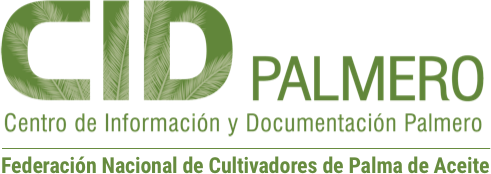Tecnologías de residuos cero para el desarrollo sostenible en las plantas de beneficio de aceite de palma

Disponible aquí Disponible aquí Disponible aquí Disponible aquí Disponible aquí Disponible aquí Disponible aquí Disponible aquí Disponible aquí Disponible aquí Disponible aquí Disponible aquí Disponible aquí Disponible aquí Disponible aquí Disponible aquí Disponible aquí Disponible aquí Disponible aquí Disponible aquí Disponible aquí Disponible aquí Disponible aquí Disponible aquí Disponible aquí Disponible aquí Disponible aquí Disponible aquí Disponible aquí Disponible aquí
Author
Yeit Haan, Teow
Sobri Takriff, Mohd
Estadisticas
Publicación:
Palmas; Vol. 43 Núm. 3 (2022); 40-55
2744-8266
0121-2923
Palmas; Vol. 43 Núm. 3 (2022); 40-55
2744-8266
0121-2923
Abstract
A pilot plant installed for the UKM-YSD Zero Waste Technology project at the Sime Darby’s Palm Oil Tennamaram mill, Bestari Jaya, Selangor features various technologies for sustainable development. It transforms a regular mill into a green technology factory. Seven strategic thrust areas were identified to address the sustainability challenges of palm oil processing, namely the discharge of a large amount of highly polluting effluent, emission of greenhouse gases (GHGs), and generation of a large amount of solid waste. The approaches adopted in this research programme generated renewable energy from palm oil mill effluent (POME) and pre-treated empty fruit bunches (EFB) hydrolysate in biohydrogen production. POME from biohydrogen and biomethane two-stage fermenter was then subjected to integrated algae wastewater treatment and CO2 sequestration and integrated membrane filtration treatment processes in recovering treated water for boiler feed application. On the other hand, EFB and POME, along with residual solids and algae biomass produced from these zero waste technologies, were used to produce organic fertiliser. The results of the pilot plant operation showed that POME and solid biomass could be used to generate additional 20% renewable energy compared to the technologies practised in existing mills at 1,020 t/d of POME discharge. Organic fertiliser was produced at a lower cost and in a shorter duration, as well as water being recovered to be used as boiler feed water. The UKM-YSD Zero Waste pilot plant serves as a pioneering technology with the possibility of changing perceptions, especially among foreign importers, that palm oil production can be environmentally friendly. Una planta de beneficio piloto instalada para el proyecto Tecnología de Residuos Cero UKMYSD en la planta de beneficio de aceite de palma Sime Darby’s Palm Oil Tennamaram, en Bestari Jaya, Selangor, cuenta con varias tecnologías para el desarrollo sostenible. El proyecto transforma una infraestructura ordinaria en una fábrica de tecnología verde. Se identificaron siete áreas de impacto estratégicas para abordar los desafíos de sostenibilidad del procesamiento del aceite de palma, entre los que se encuentran, la descarga de una gran cantidad de efluentes altamente contaminantes, la emisión de gases efecto invernadero (GEI) y la generación de muchos residuos sólidos. Los enfoques adoptados en este programa de investigación generaron energía renovable a partir de los efluentes de las plantas de beneficio de aceite de palma (POME por sus siglas en inglés) y el hidrolizado de racimos de fruta vacíos (RFV) pretratados en la producción de biohidrógeno. El POME del fermentador de 2 etapas de biohidrógeno y biometano se sometió a un tratamiento integrado de aguas residuales con algas y secuestro de CO2 y procesos de tratamiento de filtración de membrana integrados en la recuperación de agua tratada para alimentar las calderas. Por otro lado, los RFV y el POME, junto con los sólidos residuales y la biomasa de algas producida a partir de estas tecnologías de cero residuos, se utilizaron para producir fertilizantes orgánicos. Los resultados de la operación de la planta piloto mostraron que el POME y la biomasa sólida podrían usarse para generar un 20 % adicional de energía renovable en comparación con las tecnologías implementadas en las plantas de beneficio existentes a 1.020 t/d de descarga de POME. Se produjo fertilizante orgánico a menor costo y en menos tiempo, así como se recuperó agua para ser utilizada para alimentar las calderas. La plantapiloto de cero residuos UKM-YSD sirve como tecnología pionera con la posibilidad de cambiar las percepciones, especialmente entre los importadores extranjeros, y mostrar que la producción de aceite de palma puede ser respetuosa con el medio ambiente.
A pilot plant installed for the UKM-YSD Zero Waste Technology project at the Sime Darby’s Palm Oil Tennamaram mill, Bestari Jaya, Selangor features various technologies for sustainable development. It transforms a regular mill into a green technology factory. Seven strategic thrust areas were identified to address the sustainability challenges of palm oil processing, namely the discharge of a large amount of highly polluting effluent, emission of greenhouse gases (GHGs), and generation of a large amount of solid waste. The approaches adopted in this research programme generated renewable energy from palm oil mill effluent (POME) and pre-treated empty fruit bunches (EFB) hydrolysate in biohydrogen production. POME from biohydrogen and biomethane two-stage fermenter was then subjected to integrated algae wastewater treatment and CO2 sequestration and integrated membrane filtration treatment processes in recovering treated water for boiler feed application. On the other hand, EFB and POME, along with residual solids and algae biomass produced from these zero waste technologies, were used to produce organic fertiliser. The results of the pilot plant operation showed that POME and solid biomass could be used to generate additional 20% renewable energy compared to the technologies practised in existing mills at 1,020 t/d of POME discharge. Organic fertiliser was produced at a lower cost and in a shorter duration, as well as water being recovered to be used as boiler feed water. The UKM-YSD Zero Waste pilot plant serves as a pioneering technology with the possibility of changing perceptions, especially among foreign importers, that palm oil production can be environmentally friendly.
Palabras clave:
Biohidrógeno
Energía renovable
Nanocarbono
Biofertilizante orgánico
Secuestro de CO2
Recuperación de agua
Biohidrógeno
Energía renovable
Nanocarbono
Biofertilizante orgánico
Secuestro de CO2
Recuperación de agua
Disponible aquí Disponible aquí Disponible aquí Disponible aquí Disponible aquí Disponible aquí Disponible aquí Disponible aquí Disponible aquí Disponible aquí Disponible aquí Disponible aquí Disponible aquí Disponible aquí Disponible aquí Disponible aquí Disponible aquí Disponible aquí Disponible aquí Disponible aquí Disponible aquí Disponible aquí Disponible aquí Disponible aquí Disponible aquí Disponible aquí Disponible aquí Disponible aquí Disponible aquí Disponible aquí


